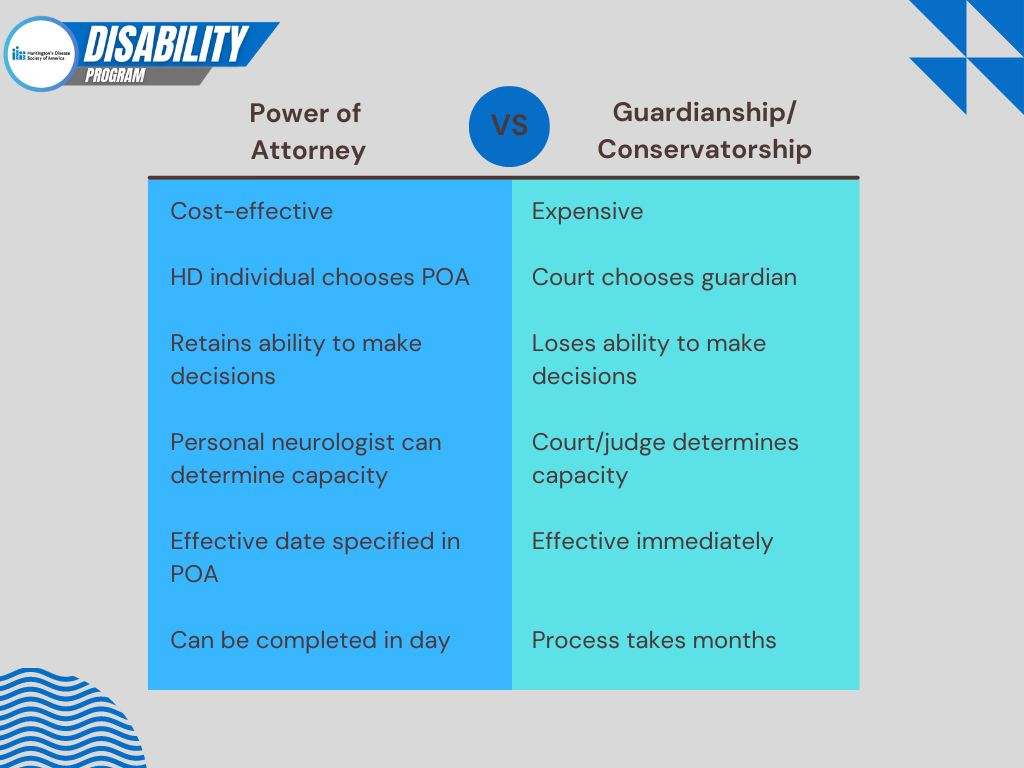Understanding Legal Planning and HD
Legal planning is a very important part of the disability umbrella that often gets overlooked. It is necessary to make sure government and financial resources are protected and to help ensure the wishes of the HD individual are met. Legal planning can be broken down into three main categories:
1. Estate Planning
2. Asset Protection
3. Legal Decision Making
All of these categories are equally important for protecting the needs, resources, and wishes of Huntington’s disease patients and families.
Estate Planning
Estate planning is a process that involves your goals and concerns, your assets, your family structure, and how you want your property transferred upon your death. Traditionally, this is done through a will. A trust can also be a good option. Estate planning is an ongoing process and changes as your life and goals change. It is important to stress that if you do not have a will or trust when you die, the state gets to decide what happens to your money and property.
Asset Protection
Asset protection is both a legal planning and financial planning tool to protect family finances. Assets include anything in a checking or savings account, retirement accounts, personal property, land, vehicles, and anything that could be sold for cash. In the HD community asset protection is also important for Medicaid eligibility. Medicaid has strict financial criteria, which takes advance planning and preparation.
Asset protection is very important for HD families because medical care and long-term care are expensive. Options for families include:
Medicaid has a 5 year lookback period that includes the transfer or sale of any asset. Asset protection accounts or trusts need to be created sooner than later.
Legal Decision Making
Legal decision making is when someone acts on your behalf to make legal, financial, and medical decisions when you are unable. The goal is for this process to be voluntary with documents like:
- Durable Power of Attorney
- Medical Power of Attorney
- Advanced directive
These documents let you decide who will act on your behalf, what decisions they can make, and when they can enforce your decisions/make decisions on your behalf. If you do not have these documents in place then legal decision making could be an involuntary process decided by the courts:
- Guardianship
- Conservatorship
You will lose decision making power and have no say in who gets to speak on your behalf. Guardianship/conservatorship is a very difficult and expensive decision for families. The goal is to avoid it altogether.


